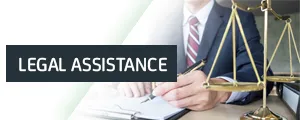The\r\nInternational Foundation for the Protection of Freedom of Speech \"Adil\r\nSoz\" conducted a study of the situation with the right to freedom of\r\nexpression, receipt and dissemination of information in Kazakhstan in March\r\n2020.
\r\n\r\n
Itreports:
\r\n- On March 16, 2020, Kazakhstan imposed a state of\r\nemergency due to the COVID-19 pandemic. Journalists faced with the problem of\r\nproviding prompt and complete information about the situation with coronavirus\r\nin the country. Citizens are made liable for disseminating fake information\r\nabout the virus.
\r\nSince the World Health Organization\r\ndeclared the outbreak of COVID-19 a pandemic,\r\nthe President of the Republic of Kazakhstan issued a decree on imposing a state of emergency (SE) in the country\r\nsince March 16. Initially it was planned to lift hte state of emergency on\r\nApril 15, but later it was extended to\r\nApril 30, 2020. Quarantine was imposed for the period of SE in the country, the\r\nactivity of all places where large numbers of people gather was suspended, all\r\npublic events, including family and memorable ones, were prohibited. On March\r\n16, a ban “on conducting audio, photo and\r\nvideo recordings in healthcare organizations, ambulances, rooms designated by\r\nlocal executive bodies for quarantine, as well as provision of medical care at home by medical\r\nworkers” was introduced in Almaty, Nur-Sultan , Shymkent and regions. State institutions\r\nbegan to give briefings and press conferences on situation with COVID-19\r\nonline, that made it difficult for journalists to get complete latest\r\ninformation on acute issues. A new algorithm has been introduced under command\r\nof the President of the Republic of Kazakhstan on March 23. In accordance to\r\nit, all information from government agencies on the coronavirus should be gathered at the information center of the\r\nMinistry of Information and Public Development (MIPD) for unified coordination and centralization\r\nof the media . Starting from March 23, Minister of Information and Public\r\nDevelopment Dauren Abayev is giving daily briefings on the situation. Only 2-3 questions are asked on the air, and the minister gives short answers without\r\nproviding any details.
\r\nOn March\r\n17, the Ministry of Information and Public Development (MIPD) of the Republic\r\nof Kazakhstan, that performs the functions of control over compliance with the\r\nrequirements of the legislation of the Republic of Kazakhstan in the field of\r\nmass media, notified Kazakhstanis that the state of emergency assumes more\r\nserious liability for administrative and criminal offenses. In this regard, the\r\nMinistry draws the attention of the media, users of social networks and instant\r\nmessengers \"to the need for strict observance of the legislation of the\r\nRepublic of Kazakhstan under the state of emergency, to prevent the spread of\r\nknowingly false information, as well as other illegal information that can\r\ndestabilize the situation in the country.\" Media reports that pre-trial\r\ninvestigations on dissemination of\r\nknowingly false information (article 274 of the Criminal Code of the Republic\r\nof Kazakhstan) are initiated by police departments against citizens.
\r\n- Due to imposing quarantine in\r\nthe country, many print media had to suspend their activities.
\r\nOn March 31, Uralsk Week informed\r\nreaders of the suspension of the print version of the newspaper. “The main and\r\nonly reason is the imposing an enhanced\r\nquarantine in Uralsk and in the West\r\nKazakhstan region. In accordance with the \r\nterms of the enhanced quarantine, many sales points where our newspaper\r\nis available will be closed. Besides, many our subscribers will not be able to\r\ncome to the editorial office under the enhanced quarantine, ”the newspaper says.\r\nThe support staff of our newspaper was sent on holidays without pay.
\r\nOn March 30, quarantine was imposed\r\nin the cities of Karaganda, Abay, Sarani, Temirtau, Shakhtinsk, the work of\r\nsales points where newspapers and magazines were available was suspended.
\r\nOn March 31, 6 media outlets of the\r\nregion signed an appeal to the akim (mayor) of the Karaganda region, in which,\r\nwhile not denying the importance of quarantine measures, the editors stated\r\nthat newspapers could not be attributed \r\nto other non-food items. After all, they fall under the concept of an\r\nimportant socially significant sphere and are engaged in ideological work. The\r\neditors asked the akim to intercede for the media before the regional emergency\r\nresponse center and ask not to impede the sale of newspapers in grocery stores.
\r\nOn\r\nMarch 31, representatives of 20 media outlets, two publishing houses and four\r\nAlmaty press distributors asked the Prime Minister of the Republic of\r\nKazakhstan, Askar Mamin, to support \r\nprint media production and distribution companies in Kazakhstan amid the country\'s response to COVID-19. The\r\nauthors of the appeal ask to allow work of those compamies as usual, to provide\r\nsupport distributing and delivering press products with reliable, useful, relevant \r\nnews to the readers, especially \r\nsocially vulnerable ones .
\r\n\r\n
- The President of the Republic of\r\nKazakhstan instructed the Committee of the National Security, the Prosecutor\r\nGeneral and the Ministry of information and public development to monitor\r\npublic mood and social networks.
\r\nOn March 23, the President of the\r\nRepublic of Kazakhstan, Kassym-Zhomart Tokayev, instructed the Committee of the\r\nNational Security, the Prosecutor General and the Ministry of information and\r\npublic development to monitor public\r\nmood and social networks, and to take “special control” over preventing spread\r\nof rumors and provocative information. “Any attempts to disseminate such\r\ninformation should be harshly suppressed, authors must be identified and\r\npunished,” Kasym-Zhomart Tokayev said.
\r\n\r\n
- Kazakhstan rated as a\r\n\"non-free\" country in the annual report of Freedom House.
\r\nOn March 4 international human\r\nrights organization Freedom House published its annual report on political\r\nrights and civil liberties. The report consists of numerical ratings and a descriptive\r\nreport for each country. This year it was entitled \"Freedom in the World 2020:\r\nA leaderless struggle for democracy\" It studied events in 195 countries\r\nand 15 territories from January 1, 2019 to December 31, 2019. Freedom House\r\nsays global freedom is getting worse for the 14th consecutive year. The report\r\nnotes that “authoritarian states” severely harass protesters. Kazakhstan scored of 23 - 5 points (with a maximum of\r\n40) for political rights and 18 points (maximum score of 60) for civil liberties,\r\nas in previous years and was included to the group of “non-free countries”.
\r\n\r\n
- The draft law \"On Amendments\r\nto the Code of Administrative Offenses of the Republic of Kazakhstan on Issues\r\nof Responsibility for Slander\" was published for discussion.
\r\nHuman rights activists believe that\r\nthe bill proposed by the Prosecutor General’s Office, proposes even more severe measures instead of\r\ndecriminalization, and such measures that actually infringe on the\r\nconstitutional guarantees of freedom of speech. A draft law On Introducing\r\nAmendments to the Code of Administrative Offenses of the Republic of Kazakhstan\r\non Issued of Responsibility for Slander\r\nhas been posted on the Open LAW website for discussion. As it stated in the concept\r\nof the bill, it was developed in accordance with paragraph 20 of the Action\r\nPlan for the implementation of the president’s instructions given at the second\r\nmeeting of the National Council of Public Trust. Paragraph 20 stipulates the\r\ndecriminalization of Art. 130 of the Criminal Code.
\r\nThe developer of the bill the\r\nProsecutor General’s Office, proposes to include Article 73-3\r\n\"Slander\" to the Code of Administrative Offenses, and define\r\npunishment for “the dissemination of knowingly false information discrediting\r\nthe honor and dignity of another person or undermining his\\her reputation” by:
\r\n- fines for an individual from 150\r\nto 200 MCI or arrest from 15 to 25 days (depending on the type of slander);
\r\n- fines for an official from 500 to\r\n750 MCI or arrest from 20 to 30 days (depending on the type of slander).
\r\nAdil Soz believes that the bill\r\nproposed by the Prosecutor General’s Office, in fact, proposes even more severe measures instead of\r\ndecriminalizing and these measures actually infringe on the constitutional\r\nguarantees of freedom of speech.
\r\n“At present, both criminal and civil\r\nproceedings to protect such subjective categories as honor and dignity are\r\ninitiated only at the request of the victim or a person who considers\r\nhimself\\herself to be such; the perpetrator, \r\npays the victim a certain amount of compensation for non-pecuniary\r\ndamage in accordance with court ruling. The bill makes this type of offense\r\nprivate-public, introduces administrative protocols and gives the the internal\r\naffairs bodies right to draw such protocols. The bill offers very large fines,\r\nbut does not mean any compensation for non-pecuniary damage to the victim. In fact it is proposed to apply state\r\ncoercion measures to private disputes of people without any reason, and such\r\nmeasures include administrative arrest, reconduction etc., ”says Adil Soz in\r\nits open letter to the President of the Republic of Kazakhstan.
\r\n“Adil\r\nsoz” believes that “the resolution of private disputes on the protection of\r\nhonor and dignity cannot be conducted administratively using measures of state\r\ncoercion” and requests that the bill on decriminalizing slander should be\r\ndrafted by the Supreme Court of the Republic of Kazakhstan in order to include\r\nthis type of offense to the Civil Code of Kazakhstan.
\r\n\r\n
- The head of public Internet\r\ntelevision 101tv.kz Botagoz Omarova was attacked by a Eurasia Building security\r\nguard in Karaganda.
\r\nBotagoz said that she came to the\r\noffice of Eurasia Building to hand in an information request. The request was\r\nnot accepted for a long time. At first the journalist was said that there is no\r\ndocumentation office in Eurasia\r\nBuilding, then the employees of the organization were refusing to put a stamp on a copy of the information\r\nrequest for s long time. As a result, Botagoz was waiting in the lobby of the\r\ncompany from 10.30 AM to 12.30 PM. At that time, employees of the KazPolymetal\r\ncompany, which is an affiliate of Eurasia Building, came there. They said that\r\nthey did not get their salaries. Botagoz began to talk to them and to make\r\nvideo on her mobile phone. Botagoz told\r\nthe KazTAG news agency: \"This security guard, a middle-aged man, jumped out, dragged me out to the street,\r\ngrabbed my phone, started to beat me, hit me several times on the porch of the\r\nbuilding.\"
\r\nBotagoz did not expect that so she\r\nfell down after the blow to the chest and hurt herself seriously. Botagoz says\r\nshe saw the guard\'s legs in front of her face, as if he wanted to kick her. One\r\nKazPolymetal jumped out to the street and stood between Botagoz and the guard\r\nwho was beating her, and cried him not to dare \r\nto beat a woman. The guard replied that she was not a woman, \"this\r\nis scum, a bitch, a f**ing journalist.\"
\r\nBotagoz called the police. The\r\npolice arrived quickly.“
\r\nAt that moment, the company made a\r\ndecision and took the workers to the assembly hall. And, it seemed that they were brought out through the back exit.\r\nAs a result, no witnesses to the beating were there when police arrived, ”the\r\njournalist said
\r\nto the KazTAG news agency. - Those people saw\r\nhow he (security guard - KazTAG) beat me. The only hope is that the police\r\nwould see the beating in the video. He (the guard - KazTAG) deleted the video\r\nwith those people are filled with indignation from my phone. He was searching\r\nmy phone. Now the employees of the company say that I\'m lying, ”the journalist\r\nsays.
\r\nAccording\r\nto Botagoz, police officers behaved professionally. She almost immediately met\r\nwith the deputy head of the Central Police Department. When he found out that\r\nthe recordings from the hall of the company were not seized by the police\r\nofficers, he became indignant and immediately sent them back - to bring the\r\nguard and the video records.Botagoz was sent for examination to the forensic\r\nmedical examination, but it turned out\r\nthat it works until 12 PM and will not work the next day. She was asked to come\r\non Thursday.The journalist is greatly shocked by what happened and emotionally\r\ndepressed. Police accepted Botagoz\'s complaint. \r\nShe is not inclined to reconciliation and is intended to apply to court.
\r\n\r\n
\r\n
3 judicial acts were issued against media and\r\ncitizens in connection with the exercise of the right to freedom of expression\r\n, the receipt and dissemination of information on cases of protection of honor,\r\ndignity and business reputation in March\r\n2020. Two of them were\r\nin favor of the media, journalists and citizens.
\r\nThe following charges were\r\nfiled in connection with the exercise of\r\nthe right to freedom of expression:
\r\n- 13 criminal charges, including\r\n5 in court.8 of them are charges of\r\ndisseminating false information brought against citizens for spreading fakes\r\nabout coronavirus.
\r\n- 6 claims\r\nand suits in civil procedure. Four of them were claims for protection of honor,\r\ndignity and business reputation.
\r\nClaims for compensation for non-pecuniary damage in March 2020 amounted to 2 mln tenge.
\r\nThe following charges were filed\r\nsince the beginning of the year:
\r\n- 23 criminal charges.
\r\n- 21\r\nclaims and suits in civil procedure.
\r\nAmong\r\nthem, 18 claims and lawsuits for protection of honor, dignity and business\r\nreputation.
\r\n- Claims\r\nfor compensation for non-pecuniary damage amounted to 28 million 500\r\nthousand and 3 tenge. The courts collected 330 thousand 993 tenge.
\r\n- 1\r\nadministrative charge
\r\n\r\n
\r\n
\r\n
The monitoring was done\r\naccording to reports of the Adil Soz Foundation\'s correspondents and\r\ninformation from open sources.
\r\n\r\n
Head of monitoring\r\nservice of Adil Soz Foundation Elena Tsoi
\r\ne-mail: lena@adilsoz.kz
\r\n
\r\n
For all questions\r\nregarding the monitoring, you may also contact
\r\ninfo@adilsoz.kz
\r\n
\r\n





